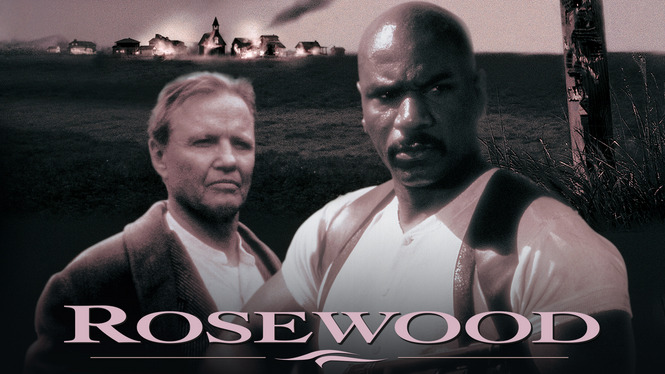Africa for Africans or is it time for international governance over some countries in Africa? This is the first Part of a series of articles focussing on issues and problems affecting the continent that gave birth to all of civilization, Africa. Let Us Know What You Think: info(at)blackstate.com
PART I. Africa in the Word Economy: The Backdrop- Colonialism
Whether the crisis is a Genocide in Rwanda,instability in Sierra Leone, lack of a government in Somalia, Civil War in Sudan or the country formerly known as Zaire, land grabbing and AIDS in Zimbabwe, Diamond and Oil wars in Angola, Crime in South Africa. The motherland collectively is clearly in need of a hug. Not to mention the problems arising from foreign debt, international ignorance and exploitation. Africa collectively may be in the most serious situation she has been in since the first men with no skin showed up and decided to destroy Eden. Many of Africa’s current problems has allot less to do with Africa’s inability to manage itself than the colonial and neo-colonial economic system and mindset it was left with. After a close analysis of the colonial situation in Africa, a solution to some of Africa’s many ails may arise.
Colonialism as an economic philosophy affected the continent of Africa in different ways; dependent upon the area in question, thus, the responses to the legacy of colonialism varied. But there are some important colonial economic legacies that the continent has had to deal with almost universally, in which I will discuss. The most important legacy of colonialism in Africa, and what has essentially relegated African economies into permanent third world- marginalized status, is the integration of the African economy into the world economic system. Over a Seventy year period the colonial powers of Europe slowly integrated Africa into the global economy. Africa’s peripheral status in the world economy is one of the reasons it remains underdeveloped as a whole. I will also discuss the ways in which colonialism shaped the domestic structures of African economies and the affects this had on the society at large. Finally, I will discuss the African responses to these legacies and overall what this all means in terms of development in Africa and why African economies are on life-support.
Most African nations are reliant on the export of one or two primary commodities or unpolished goods. African nations are virtually forced to sell these exports at market prices at the behest of the global marketplace, this is a legacy of colonialism in Africa. Also, as a direct result of colonialism, African economies are not reliant on indigenous manufacturing or industry in fact, there are very few domestic industry’s or companies, not including multinational corporations. This source or type of colonial economic change made African economies terribly vulnerable to the ups and downs of the world market. In addition, many of these countries produce and export the same or a similar commodity especially in the former agricultural colonies of East Africa and West Africa, thus reducing there ability to bargain and gain favorable terms of trade. Most African states receive goods from there ex-colonial lords and rely on these goods for survival; which could make one believe that not much has changed in the economy except the leaders and the flags, there are exceptions, but the truth is African economies have become import dependent, export dependent and this is a legacy of the economic effects of colonialism in Africa. This reliance is drastically different than in pre-colonial Africa and is one of the most telling economic differences in pre and post-colonial Africa.
There is not much African States can so to remedy the problem. They are trapped in a sick game a system in which they will always lose, as long as they are incapable of manufacturing unpolished goods. It would be very difficult to disengage from the world economy because of there reliance, dependence on imports. The importation of cars, machines, food- which was unheard of in pre-colonial Africa is needed for daily survival. There were no famines in Africa prior to colonialism. Regionalization is an option but politics gets in the way. The integration of African economies into the world has been one of the most notable economic effects of colonialism.
Along with Africa’s integration into the global economy, the ways in which the domestic economies of African states are structured is also a telling effect of colonialism in Africa. For example, colonialism extended commerce and the money economy into the interior of Africa. This process standardized the expansion of commerce with a common currency. This greatly limited barter exchange and subsistence trade, primary components of pre-colonial African economies.
In addition, the commercialization of land, labor and produce gave specific money values or attached money value to activities that had previous been for social use. In pre-colonial Africa peasants and farmers would produce for there own use and maybe a little to trade for some goods but farming was for subsistence there was no conception of production for the global market. No one owned the land in pre-colonial Africa, farmers had use rights over the land but could not sell the land.
The colonial era also introduced social and demographic changes in Africa that indirectly affects the economy such as the introduction of education (formal), literacy expansion, urbanization, and hospitals. Birth rates have increased and the death rates have dropped in many African nations as a result of colonialism. New levels of technology that had never been seen in Africa before were introduced such as electricity, telecommunications also as a result of colonialism. So there was some good that came out of colonialism and some Africans benefited. But new forms of inequality and tensions arose when the colonial powers left, between traditional and modern, upper class and lower, urban and rural, where there had not been before, colonialism.
What does all this mean? Well, looking at World Bank or IMF statistics on African growth, GNP, GDP, one can see that African economies are in a horrible state and they have been for most of there politically independent years. This is partially due to the economic legacy of colonialism; particularly the integration of the African economy into the global economy, partially due to bad leaders and bad economic policies, or good leaders with bad economic policies, but for some reason the economic policies have been wretched. Nothing has worked, which leads me to believe that African development has to come from within meaning from the peasantry, farmers and African ingenuity and entrepreneurship; from within I mean from the people not the government. The Tanzania, Ujamaa experiment, though it to failed is an example of African originality that must take hold if African economies are going to live. It seems that African nations over the past 30 years have tried to accelerate the process of development. The African economies were developing and thriving at the onset of colonialism and one can argue that colonialism cut off the natural process of development in Africa not sped it up and in fact, this may be the most telling colonial economic legacy in Africa.









